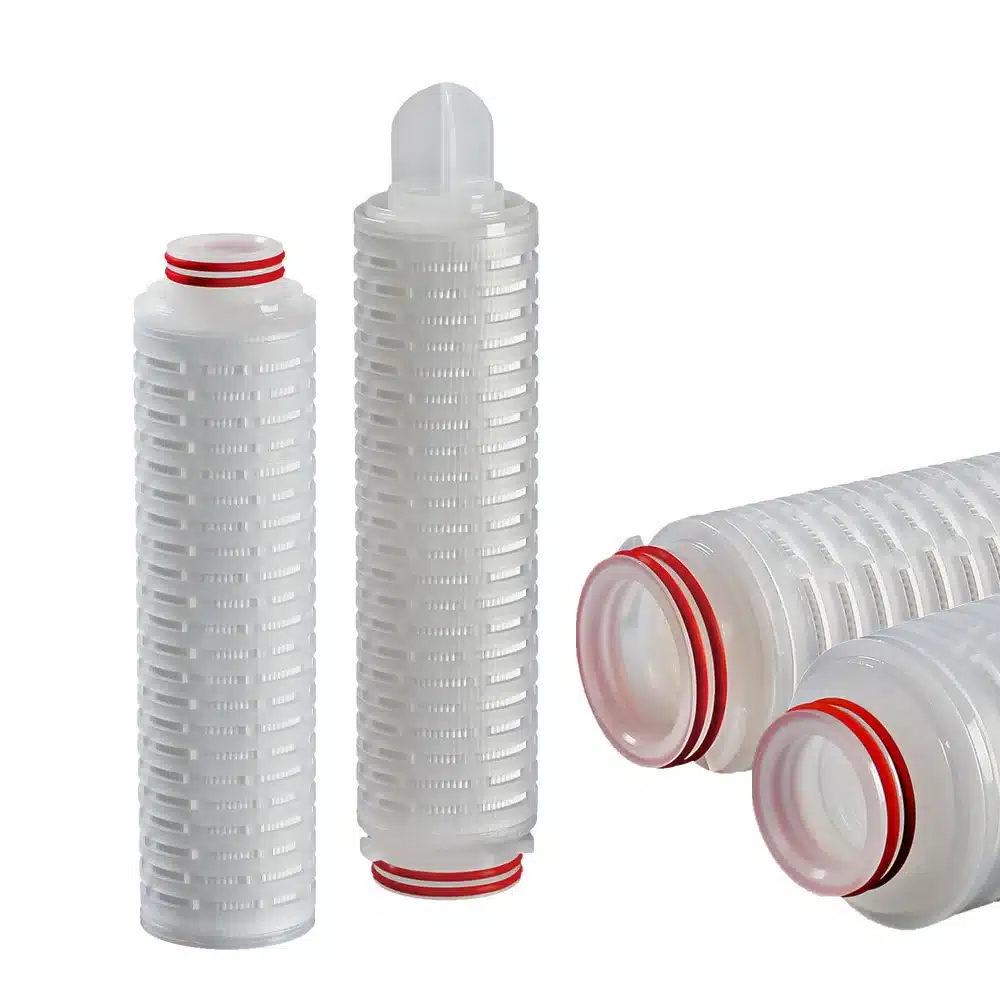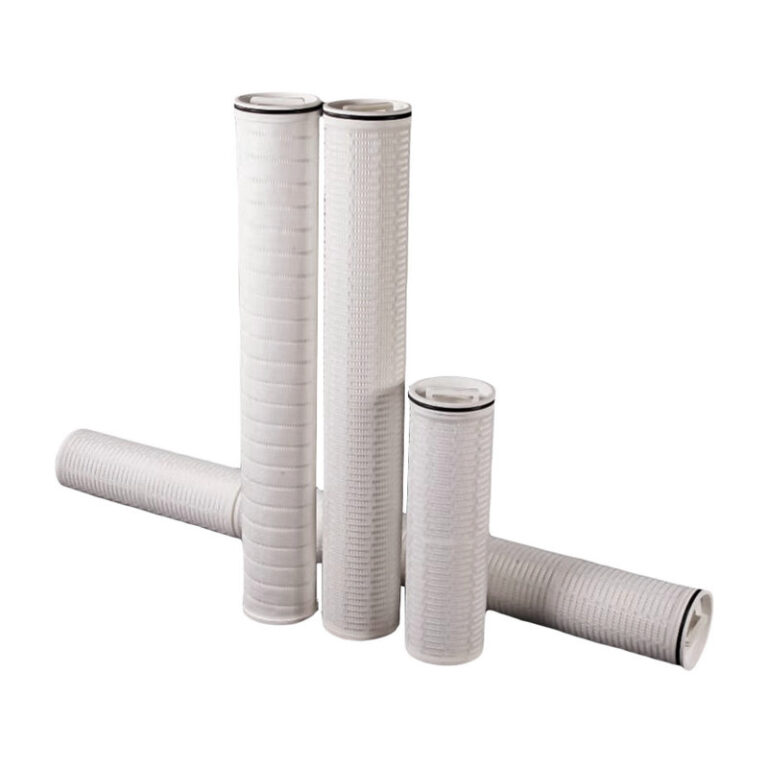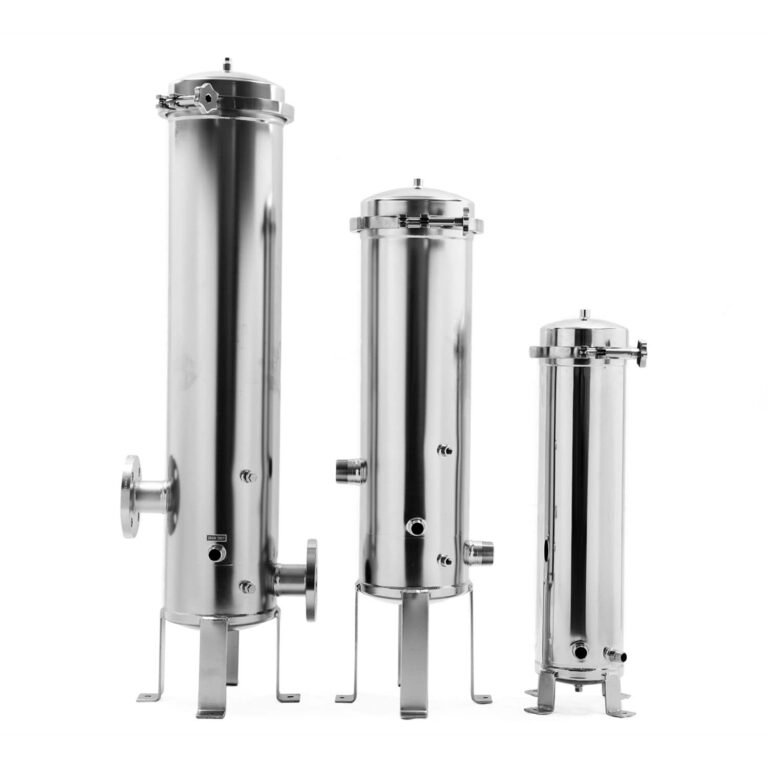What Are Polypropylene Pleated Filter Cartridges
What Are Polypropylene Pleated Filter Cartridges – Complete Guide & Supplier Insights
INTRODUCTION
Polypropylene pleated filter cartridges are a cornerstone of modern filtration systems, offering high performance, versatility, and cost-effectiveness for a wide range of industries. Whether you are treating drinking water, protecting sensitive pharmaceutical processes, or maintaining industrial fluid purity, these cartridges deliver consistent results. Their unique pleated structure maximizes surface area, enabling them to trap more particles without compromising flow rate, while the polypropylene construction ensures excellent chemical compatibility and durability.
In today’s competitive market, choosing the right filtration component is not only a technical decision but also a strategic one. The right filter can extend equipment lifespan, reduce downtime, and lower operational costs. As a leading polypropylene pleated filter cartridge manufacturer and supplier in China, we combine advanced manufacturing technology with strict quality control to deliver products that meet global standards such as FDA, ISO, and NSF.
This comprehensive guide will help you understand what polypropylene pleated filter cartridges are, how they are made, where they are used, and why sourcing directly from a trusted factory can make a difference in performance and profitability.
What Are Polypropylene Pleated Filter Cartridges?
A polypropylene pleated filter cartridge is a cylindrical filtration element made entirely or predominantly from polypropylene material. Its core component is a fine polypropylene membrane or media that is pleated—folded in a concertina-like fashion—to increase the available filtration surface area. This pleated structure is then supported by polypropylene inner and outer cages, with end caps sealed to ensure no bypass occurs.
Main Components:
Filtration Media: Polypropylene membrane or non-woven PP fabric.
Inner Core: Rigid polypropylene tube for structural support.
Outer Cage: Polypropylene protective layer to prevent media damage.
End Caps: Polypropylene, often thermally bonded, with different connection designs.
Gaskets/O-Rings: EPDM, silicone, or Viton to ensure leak-tight sealing.

Why Polypropylene?
Polypropylene is chemically inert, resistant to a wide range of acids, alkalis, and solvents, and does not shed fibers. It is also thermally stable, lightweight, and cost-efficient, making it ideal for disposable filtration applications.
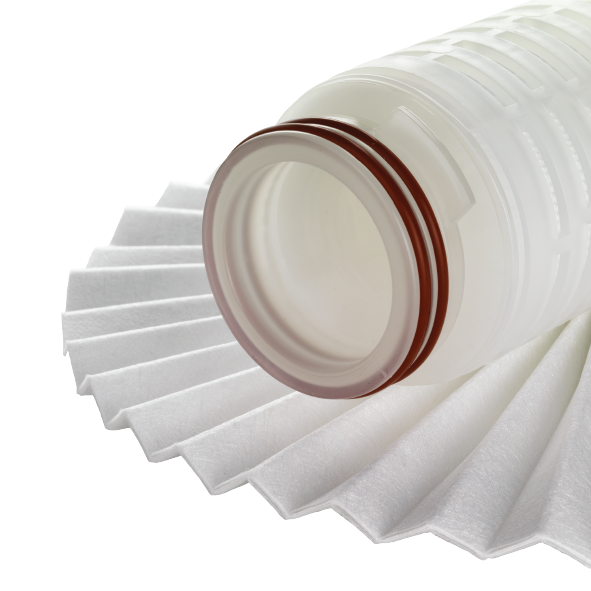
Key Features of Polypropylene Pleated Filter Cartridges
High Dirt-Holding Capacity – The pleated structure provides a large surface area for particle capture, extending filter life and reducing replacement frequency.
Excellent Chemical Compatibility – Suitable for most acids, bases, and organic solvents.
Low Pressure Drop – Efficient flow-through design reduces energy consumption in pumping systems.
Thermally Bonded Construction – No adhesives or binders that might contaminate the filtrate.
Broad Micron Range – From submicron precision filtration to coarse pre-filtration.
Wide Temperature Tolerance – Stable performance from freezing conditions to near-boiling fluids.
Non-Fiber Releasing – Ensures product purity in sensitive processes.
Easy Installation & Replacement – Compatible with standard filter housings worldwide.
Technical Specifications & Standards
Polypropylene pleated filter cartridges come in a variety of specifications to meet different application needs.
Typical Parameters:
Micron Ratings: 0.1, 0.2, 0.45, 1, 5, 10, 20, 50 μm
Lengths: 5″, 10″, 20″, 30″, 40″
Outer Diameter: 2.5″ (standard) or 4.5″ (big blue/high flow)
Core & Cage: Polypropylene
End Cap Styles: DOE (Double Open End), SOE (Single Open End), 222/226 O-ring connections
Flow Rate: Typically 6.6–8.8 GPM for a 10″ cartridge at 1 psi drop (varies by micron rating)
Operating Temperature: 0°C to 80°C (32°F to 176°F)
Max. Differential Pressure: 4.2 bar @ 20°C
Compliance & Certifications:
FDA CFR Title 21: Suitable for food contact.
NSF/ANSI Standards: For potable water systems.
ISO 9001: Quality management certification.
EU Directives: ROHS compliance.
By meeting these standards, PP pleated filter cartridges are acceptable for critical applications in pharmaceuticals, food & beverage, and microelectronics.
Advantages Over Other Filter Type
Compared to Melt-Blown Filters:
Pros: Higher surface area, longer service life, better flow rate.
Cons: Slightly higher initial cost but lower cost per liter filtered.
Compared to String-Wound Filters:
Pros: More consistent pore size, better particle retention, cleaner handling.
Cons: Less suited for extremely high viscosity fluids.
Compared to Depth Filters:
Pros: Lower pressure drop, easier cleaning, more predictable performance.
Cons: Depth filters can sometimes hold more contaminant in certain conditions.
The choice depends on your application’s specific particle load, fluid type, and cost considerations.
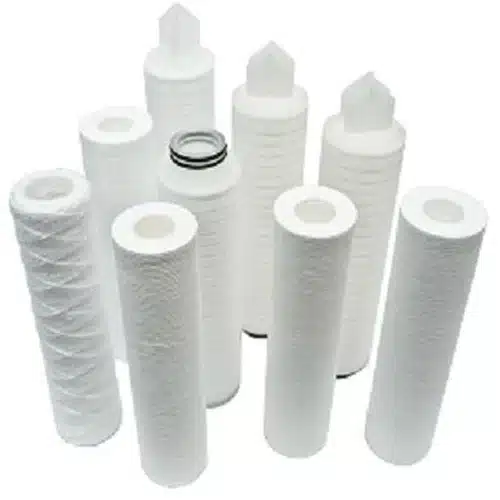
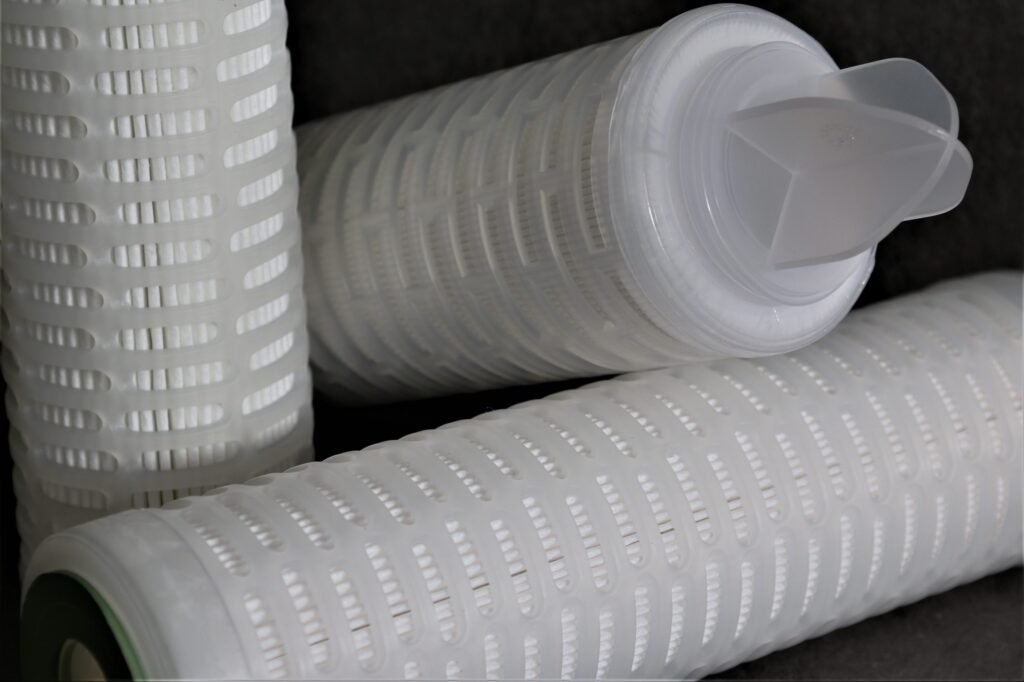
Applications Across Industries
Water Treatment – Pre-filtration before reverse osmosis membranes, sediment removal, and polishing of municipal or well water.
Food & Beverage – Filtration of bottled water, beer, wine, soft drinks, edible oils, dairy products.
Pharmaceuticals & Biotechnology – Clarification of injectable drugs, buffer solutions, and culture media.
Microelectronics – Removal of submicron particles from process water used in chip manufacturing.
Chemical Processing – Filtration of acids, alkalis, solvents, and process fluids.
Power Generation – Turbine condensate filtration, boiler feedwater treatment.
How They Are Manufactured – Step-by-Step
Material Selection – Virgin polypropylene resins are chosen for purity.
Media Production – Melt-blown or membrane sheets are prepared.
Pleating – The media is folded into pleats using specialized equipment.
Assembly – Media is inserted into inner core and outer cage.
End Cap Sealing – Thermal bonding or ultrasonic welding ensures leak-proof ends.
Integrity Testing – Each cartridge is tested for structural integrity and flow performance.
Packaging – Cleanroom packaging to prevent contamination during shipping.
Installation & Maintenance Tips
Check Housing Compatibility – Ensure length, diameter, and end-cap type match.
Flush Before Use – Remove loose particles or manufacturing residues.
Monitor Pressure Drop – Replace when it reaches manufacturer-recommended limits.
Avoid Over-Cleaning – While some PP pleated filters can be rinsed, frequent cleaning may damage pleats.
Stock Spare Cartridges – To avoid downtime.
Buyer’s Guide – How to Choose the Right PP Pleated Filter Cartridge
When sourcing polypropylene pleated filter cartridges, consider:
Micron Rating: Match to particle size in your process.
Chemical Compatibility: Verify PP is suitable for your fluid.
Flow Rate Requirements: Higher flow may require larger cartridges or more in parallel.
End-Cap Design: Choose DOE, SOE, 222/226 O-rings, etc., based on your housing.
OEM Options: Branding, labeling, and packaging customization for resale.
Supplier Reliability: Look for proven export experience, quality certifications, and customer references.
Why Source from Our Factory in China
As a direct manufacturer of polypropylene pleated filter cartridges, we offer:
Competitive Factory Prices – No middlemen.
Strict Quality Control – 100% integrity tested before shipment.
Custom OEM & Private Label Services – Boost your brand presence.
Fast Lead Times – Large production capacity for urgent orders.
Global Export Experience – We ship to North America, Europe, Middle East, and Asia.
FAQs
Q: Are polypropylene pleated filter cartridges reusable?
Some can be rinsed and reused a few times depending on application, but they are generally designed for single-use.
Q: What is their shelf life?
Stored in a clean, dry environment, they can last 3–5 years.
Q: Do they remove bacteria?
With submicron ratings (e.g., 0.2 μm), they can achieve bacterial reduction but not full sterilization without additional disinfection.
Q: Can they handle hot water?
Yes, up to about 80°C; for higher temperatures, special materials may be required.
Q: Which industries benefit most?
Water treatment, food & beverage, pharmaceuticals, electronics, and chemicals.
Conclusion & Call-to-Action
Polypropylene pleated filter cartridges deliver a powerful combination of high filtration efficiency, broad chemical compatibility, and cost-effectiveness. From municipal water plants to pharmaceutical cleanrooms, they protect processes, equipment, and end-product quality. By choosing a reliable manufacturer with proven expertise, you can ensure consistent supply, competitive pricing, and top-tier performance.
Ready to improve your filtration system?
Contact us today for a free quote or sample and discover why businesses worldwide trust our polypropylene pleated filter cartridges for their most demanding applications.

